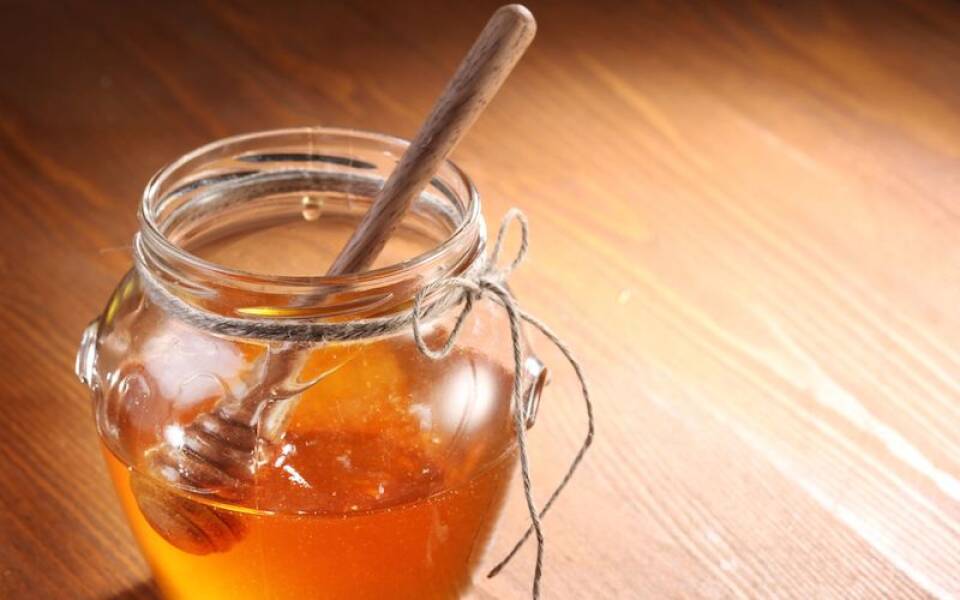The Greater Boston area harbors a growing population of urban beekeepers, from residents with hives in their backyards to businesses that provide a home for bees on skyscraper rooftops. Local honeybee expert and researcher Dr. Noah Wilson-Rich, who founded The Best Bees Company while pursuing a PhD in Biology at Tufts, shares his insights on this valuable insect. Despite the threat of Colony Collapse Disorder and other diseases, the future holds the buzz of promise for pollinators.

The Best Bees Company is described as a full-service beekeeping operation. Can you explain what that means?
It started six years ago with no funding, no investors, just a Facebook page and a dream. Now we’ve got over twenty employees, we’re a national company and we’ve raised about a million dollars for bee research from our clients. The business hasn’t changed since day one. We build beehives by hand here in Boston, install them at client sites (whether that’s a city rooftop or a farm in the country), install the bees and check in about once a month to make sure they’re healthy.
Who are your clients?
Our clients are very diverse. We have some large scale corporate clients, but the majority of our work is done for individual residences. We also work with schools, and have a lot of clients from the hospitality industry, including hotels and restaurants. That is a huge client base, especially here in Boston.
Why is focusing on urban beekeeping – you mention skyscrapers – so important?
It’s been so fascinating; I think that perhaps it started off by chance, the research. Just because of proximity, I started selling most of my beehives to residents of Boston, Cambridge and Somerville. Eventually, I sold hives to places in the countryside as well, outside of the cities, and what we came to notice was that the beehives in the cities were making more honey than beehives outside of the cities. And the beehives in the cities were surviving winter at higher rates.
That’s surprising!
Yeah, it’s been going on for years. We don’t exactly know why yet, but what it does say is that urban beekeeping is not just a trend. It’s actually better for the bees, and we need to pay attention to that. Available land is limited, so we have to be smarter about how we’re using it, even when it comes to the most basic need of food. It becomes a social justice issue, and policy makers around the world, including cities like Boston, Cambridge and over in Watertown, they’re noticing this. And I believe they’re really working hard to put policies in place so that there are guidelines to make all of these urban homesteading things, from beekeeping to farming on rooftops, possible.
What’s the most common mistake people make when they start out?
You know, one thing that people sometimes do is they let the excitement of a new venture get ahead of them and they don’t take the proper beekeeping class in order to know what to do. [Honeybees] can get diseases and fly for miles, so if there’s a hive that gets neglected or it’s just not properly managed, an infected beehive can then cause a disease outbreak. It really is a larger community issue. You need to work together to provide educational opportunities for everybody.
In addition to getting educated, is there any other advice you’d give to beekeepers?
To get started, take a beekeeping class and then hire a beekeeping service to manage your hives, or let an experienced beekeeper put hives on your land for a one-on-one learning opportunity. Communication is also key. The neighbor issue is something that people in big cities often wonder about. Honeybees die when they sting, so they’re not motivated to sting us, and they’re super beneficial. It’s the beekeeper’s burden to become the educator.

How would you describe the beekeeping community in the Boston area?
It is a very young one. The Boston Beekeepers Association hasn’t even been in existence for a year yet! The Massachusetts Beekeepers Association has been around for, I’d say, around a hundred years now. So even though beekeeping is not new to Massachusetts, in Boston and Cambridge we can finally say, ‘We’re a group, let’s get together and have dialogue and learn and work together.’
So what is Boston honey like?
There are actually two hot spots that every single year produce the most honey, the South End of Boston and Harvard Square in Cambridge.
It sounds like even the bees at Harvard are overachievers!
Exactly! It’s pretty amazing, and we don’t exactly know why, but some of the things that are hurting honeybee health might be absent in these particular areas, [such as] pesticides and fungicides, plus there is floral diversity. And the honeys change with the season depending on what’s in bloom. There’s a store in Harvard Square called Follow the Honey where visitors can taste all of the different honeys from around the world.
Can you give me some examples of what kind of research you do?
We have two different research operations under the same roof these days. Applied research at The Best Bees Company develops things like vaccines for bees or other treatments that can then be put on the marketplace to help beekeepers and farmers keep bees healthy. The Urban Beekeeping Laboratory & Bee Sanctuary is a 501c3 non-profit research organization, and that’s for basic science research. We’re looking to educate and test hypotheses and get information out there. We’ve got a paper coming out now with Tufts University that shows some insight into how to vaccinate a bee. We’re also doing a really exciting study on urban beekeeping around the country, looking at different factors, such as elevation.
You’ve written about bee health in your book, The Bee: A Natural History, among other places. What can you tell us about that?
This over-reliance on honeybees is stressing them out; it’s hurting their immune systems and making them sick. More honeybee hives live on our nation’s highways than do not. About two million honeybee hives live on flatbed trucks because the monoculture crops around the country have the whole American agricultural system out of whack. That’s a huge problem because there’s less diversity for bees to forage upon, and when one particular crop [is done], all those two million beehives need to hit the road again to go find other food. These are the bees that are associated with disease and colony collapse disorder (CCD). We need to understand other species of bees so that at minimum we can stop this overreliance on honeybees.
You write about the phenomenon of CCD and how it has ended. How come no one else talks about this?
Nobody has seen CCD for at least three years. That’s not to say that bees aren’t dying, they’re just dying from other things now, such as fungal infections. But we weren’t updating the public, and I think there was a big disturbance because everyone was working with outdated information. These mass die-offs have happened before [throughout history], so I think the overall message is to understand that there are different environmental changes that can happen. The least we can do is stay updated, try to understand the importance of bees and where our food comes from, and then we can actually try to make a difference from there.
What can be done to promote bee health?
Well, the three leading hypotheses for what’s killing bees are: one, chemicals (pesticides, fungicides and herbicides), two, disease, and three, habitat loss. There aren’t enough diverse flowers to keep bees healthy. Something anybody can do [to help] is to plant flowers.
To learn more about beekeeping and classes near you, visit the Boston Beekeepers Association at bostonbeekeepers.org or the Massachusetts Beekeepers Association at massbee.org . You can find more information on Dr. Wilson-Rich and The Best Bees Company at bestbees.com .
This interview has been edited and condensed.




